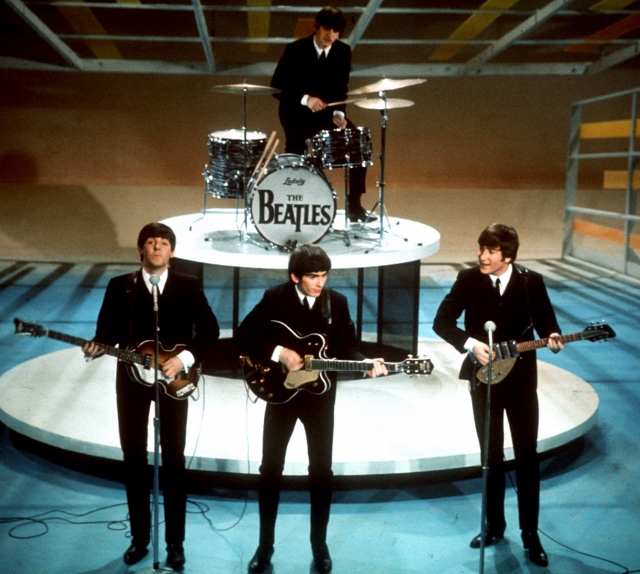Bucheon is a community nestled snugly in the Seoul Megalopolis. I lived and worked there two whole years and still go there frequently. One late Friday evening, around about August 2014, I found myself walking through Bucheon’s Central Park (부천중앙공원).
Would you believe what I heard?
I heard the Beatles.
Not the real Beatles. Not a recording. I heard clearly-recognizable renditions of Beatles songs, these being songs first released around fifty years earlier. Playing them, and rather well, was a lone Korean guy in his 30s or 40s. A small crowd was gathered around. He was asking for donations in the open guitar case but seemed to be playing more for the fun of it.
He was playing only Beatles songs. Nothing else. He was singing in English. The crowd was full of people born in the 1970s, 1980s, and 1990s, yet they knew the songs and were into it.
Earlier that year (2014), when I was in the USA, I recall some fanfare around the fiftieth anniversary of the Beatles appearing on the Ed Sullivan Show (whatever that was) for the first time in February 1964. By my count, that is over fifty years ago. Beatles music is still very popular and recognizable even after fifty years, and across the world. I also recall the Beatles were very popular in Kazakhstan, with life size bronze statues of the four Beatles on a hill overlooking the city, erected sometime in the 2000s.

Beatles on the Ed Sullivan Show, date unknown (found online)
As I walked away after hearing a few songs, I figured that this seemingly-odd experience, hearing an all-Beatles impromptu cover concert in Korea in 2014, was a sign that cultural change has slowed significantly. (I jotted this down as an idea to write about but never got around to it; here it is five months late.) Fifty years of time separates us from the Beatles’ heyday now, but they remain music staples. Consider that 1914 and 1964 are as equally distant in time as are 1964 and 2014. I may be wrong about this, but I think very near nobody was still interested in 1914’s pop music in 1964.
Actually — and to kind of contradict my own point — I do know some pop songs of the 1910s and I actually think they’re rather good in their simple and innocent way. One my grandfather sang (which was a song from before his time as he was born in the 1910s himself) is called “K-K-K-Katie” about a stuttering young American conscript who has to leave his sweetheart, Katie, behind, to go fight in France. Another 1910s song I know is “The Last Long Mile,” also about a conscript explaining to us, through the gracefulness of song, that army training isn’t so hard after all, except, that is, for the “last long mile” of the twenty mile training marches.
Here is “The Last Long Mile”:
Here is K-K-K-Katie (1918)

